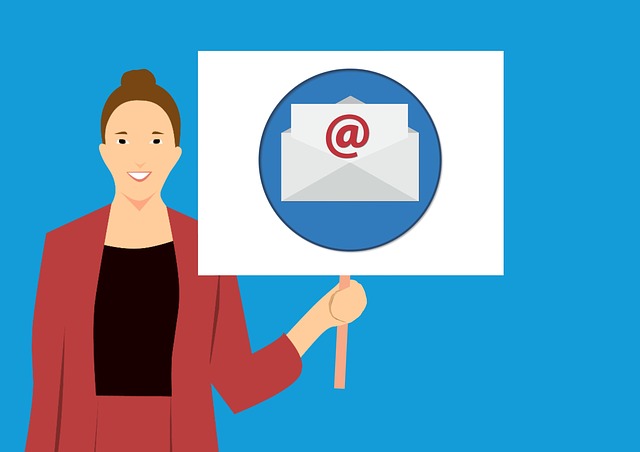Are you ready to embark on a journey through the ever-changing landscape of email marketing in the travel and hospitality industry?
Brace yourself, for the General Data Protection Regulation (GDPR) is a tidal wave that has swept across the marketing world, and its impact on email marketing is profound. Just as a skilled navigator charts a course through treacherous waters, you must navigate the challenges and opportunities presented by GDPR.
GDPR regulations require a reassessment of your data collection and storage practices, as well as a revamping of your email marketing strategies. Think of it as a compass guiding you towards building trust and transparency with your customers.
With GDPR, obtaining consent and implementing opt-in strategies becomes paramount. It’s time to set sail on this compliance-focused journey, where the rewards of customer loyalty and a solid reputation await.
So, hoist your compliance flag high and prepare to navigate the uncharted waters of GDPR in the travel and hospitality industry.
Key Takeaways
- Compliance with GDPR requires reassessment of data collection and storage practices
- Obtaining explicit consent and implementing opt-in strategies is crucial under GDPR
- Failure to comply with GDPR can result in fines and damage to a company’s reputation
- Building trust and transparency with customers is essential in the data privacy landscape
Understanding GDPR Regulations in the Travel and Hospitality Industry
Now, let’s dive into how GDPR regulations affect email marketing in the travel and hospitality industry, so you can understand how to navigate these rules and still connect with your customers.
GDPR compliance challenges have had a significant impact on how businesses handle customer data. With stricter regulations in place, it’s crucial for companies in the travel and hospitality industry to ensure they’re following the guidelines set forth by GDPR.
This means obtaining explicit consent from customers before collecting their data and implementing robust security measures to protect that data. Failure to comply with these regulations can result in hefty fines and damage to a company’s reputation.
Therefore, it’s essential to reassess data collection and storage practices to ensure compliance and maintain customer trust.
Reassessing Data Collection and Storage Practices
Additionally, reevaluating how we gather and store information can greatly enhance our approach in the travel and hospitality sector. With the implementation of GDPR, data privacy has become a paramount concern for businesses.
It is crucial to ensure that customer consent is obtained before collecting any personal data. This means clearly explaining why the data is being collected and how it will be used, as well as giving customers the option to opt out or request the deletion of their data.
Furthermore, it is important to review and update data storage practices to ensure that information is securely stored and protected from unauthorized access or breaches. By prioritizing data privacy and customer consent, businesses in the travel and hospitality industry can build trust with their customers and lay a solid foundation for their email marketing strategies to comply with GDPR regulations.
Adapting Email Marketing Strategies to comply with GDPR
Revamp your approach to ensure your email campaigns align with the new data privacy regulations. The impact of GDPR on email marketing in the travel and hospitality industry requires businesses to adapt their strategies to comply with the regulations. To achieve email compliance, it is crucial to understand the key principles and requirements of GDPR. This includes obtaining explicit consent from customers before sending them marketing emails, providing an easy opt-out mechanism, and implementing strong data security measures.
To help you navigate through these requirements, here is a table outlining some best practices for adapting your email marketing strategies:
| Best Practices | Description |
|---|---|
| Obtain explicit consent | Clearly explain how you will use customer data and seek consent |
| Provide easy opt-out options | Allow customers to easily unsubscribe from your emails |
| Implement data security | Protect customer data through encryption and secure storage |
By implementing these practices, you can ensure compliance with GDPR while maintaining effective email marketing campaigns. Building trust and transparency with customers is the next crucial step in this process.
Building Trust and Transparency with Customers
Building trust and transparency with customers is essential in the ever-evolving landscape of data privacy regulations. Research shows that 91% of consumers are more likely to trust companies that are transparent about their data practices.
To build trust, travel and hospitality companies should implement trust-building initiatives and improve customer communication. This includes being clear about the data collected, how it’s used, and providing easy-to-understand privacy policies.
Companies should also offer customers the ability to control their data, such as allowing them to easily opt-out of marketing communications or update their preferences. By being transparent and giving customers control over their data, companies can foster trust and strengthen their relationships with customers.
This will set the stage for the subsequent section on leveraging consent and opt-in strategies to further enhance compliance with GDPR.
Leveraging Consent and Opt-In Strategies
To enhance your compliance with data privacy regulations, it’s crucial to incorporate effective consent and opt-in strategies into your customer engagement approach.
By maximizing engagement and improving deliverability, you can ensure that your email marketing efforts are in line with the General Data Protection Regulation (GDPR).
First and foremost, obtain clear and explicit consent from your customers before sending them any marketing emails. Implement a robust opt-in process that clearly explains what data will be collected and how it will be used.
Additionally, provide customers with the option to easily opt-out at any time. Regularly review and update your consent and opt-in methods to stay compliant with evolving regulations.
By prioritizing consent and opt-in strategies, you can build trust with your customers while also maintaining compliance. This will set the stage for successfully navigating the challenges and opportunities of GDPR in the travel and hospitality industry.
Navigating the Challenges and Opportunities of GDPR in the Travel and Hospitality Industry
One way to successfully navigate the challenges and opportunities of GDPR in travel and hospitality is by implementing robust consent and opt-in strategies. This can ensure compliance with data privacy regulations while building trust with customers. Here are five key points to consider when navigating GDPR in the travel and hospitality industry:
- Conduct regular audits of your data collection processes to ensure compliance with GDPR regulations.
- Develop clear and concise privacy policies and terms of service that outline how customer data will be used and protected.
- Implement secure data storage and encryption methods to protect customer data from unauthorized access.
- Provide customers with easy-to-use mechanisms for managing their consent settings and preferences.
- Regularly communicate with customers about their data privacy rights and how their data is being used, ensuring transparency and building trust.
By following these guidelines, travel and hospitality businesses can effectively navigate GDPR compliance challenges while prioritizing customer data privacy.
Frequently Asked Questions
How can the travel and hospitality industry ensure compliance with GDPR regulations when collecting and storing customer data?
To ensure compliance with GDPR regulations in collecting and storing customer data, the travel and hospitality industry must prioritize two key areas:
-
Ensuring customer consent and securing data storage. Obtain explicit consent from customers when collecting their data, clearly explaining how it will be used.
-
Implement robust security measures to protect customer data, such as encryption and regular audits.
Regularly review and update your data protection policies to stay in line with GDPR requirements and ensure ongoing compliance.
What steps can be taken to adapt email marketing strategies in order to comply with GDPR?
Are you wondering how to adapt your email marketing strategies to comply with GDPR regulations?
Adapting email marketing to ensure GDPR compliance is crucial for the travel and hospitality industry.
Start by obtaining explicit consent from customers before sending them emails.
Implement robust data protection measures to secure customer data.
Regularly review and update your privacy policies to align with GDPR requirements.
Lastly, provide clear opt-out options and honor customer requests promptly to demonstrate your commitment to data protection.
How can the travel and hospitality industry build trust and transparency with customers in light of GDPR?
To build trust and transparency with customers in light of GDPR, the travel and hospitality industry must focus on building customer loyalty and enhancing data protection measures. This can be achieved by clearly communicating how customer data is collected, stored, and used, as well as obtaining explicit consent for marketing communications.
Implementing robust data protection policies, regularly auditing compliance, and providing customers with control over their data will help establish a strong foundation for trust and transparency in the industry.
What are some effective consent and opt-in strategies that can be used to leverage customer data in compliance with GDPR?
To leverage customer data in compliance with GDPR, it’s crucial to implement effective consent management and opt-in strategies.
Start by clearly explaining to customers how their data will be used and obtain their explicit consent.
Provide granular options for customers to choose the types of communications they want to receive.
Regularly review and update your consent management practices to ensure ongoing compliance.
By prioritizing transparency and giving customers control over their data, you can build trust and maintain GDPR compliance in your email marketing efforts.
What are the main challenges and opportunities that GDPR presents to the travel and hospitality industry?
Data protection measures under GDPR present both challenges and opportunities for the travel and hospitality industry. The challenges include the need to obtain explicit consent from customers and ensuring the security of their personal data.
On the other hand, GDPR provides an opportunity for the industry to build trust with customers through transparent data practices.
The impact on marketing campaigns is significant, as companies need to review their email marketing strategies and ensure compliance with GDPR’s strict regulations on data processing and storage.
Conclusion
In conclusion, the impact of GDPR on email marketing in the travel and hospitality industry is significant. By understanding and implementing the regulations, businesses can reassess their data collection and storage practices, adapt their email marketing strategies, and build trust and transparency with customers.
Leveraging consent and opt-in strategies will be crucial in ensuring compliance. While navigating the challenges of GDPR may require adjustments, it also presents opportunities for businesses to enhance their data protection measures and strengthen customer relationships.
By staying thorough, analytical, and compliance-focused, businesses can effectively navigate the changes brought about by GDPR and continue to thrive in the travel and hospitality industry.








